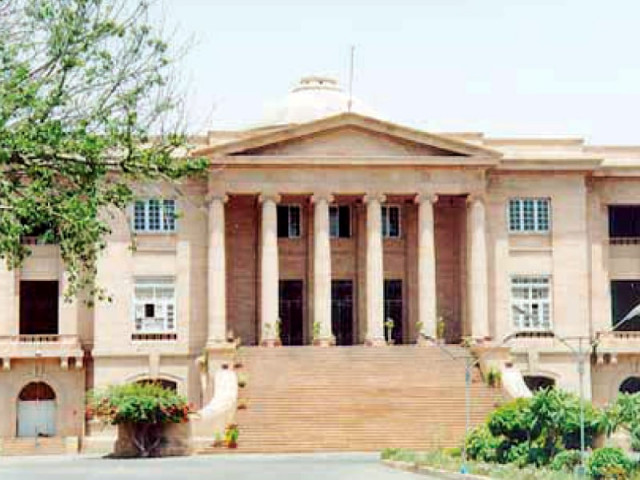Hell must be holding a special pit for SBCA officers: SHC
Building watchdog draws court's ire over illegal constructions in city

The Sindh High Court (SHC) on Tuesday came down hard on the Sindh Building Control Authority (SBCA) over its inaction against illegal construction in the metropolis, terming it "the most notorious institution of the government" and directing it to submit a compliance report by September 16.
The bench said in its remarks that a special pit in hell might be waiting for corrupt SBCA officers who allow illegal structures, knowing well that the building could collapse and kill residents.
A two-member bench, headed by Justice Muhammad Iqbal Kalhoro, was hearing a petition against unlawful construction in Ramzanabad, Garden West. The petitioner's counsel, Farjad Ali Khan, submitted that only ground-plus-one structures were allowed in the area but a ground-plus-four building had been raised, where commercial activities were also under way, in violation of zoning laws.
Officials of the Karachi Metropolitan Corporation (KMC) and SBCA appeared in court in compliance with earlier orders. When asked what action had been taken since the building's construction in 2000, the SBCA director said the matter had only recently come to their knowledge and would now be acted upon as per the court's directives.
The bench expressed strong displeasure over the response. "You will not do your work? Why is there a need for a court order? If someone dies, let them die - if the court orders, you will work," Justice Kalhoro remarked. He further observed: "Your job is only to earn money from under the table. SBCA is the most notorious institution of the government. There will be a special place in hell for SBCA officers."
The court ordered the SBCA to take action against the illegal construction and submit an implementation report at the next hearing.
LPG outlets in residential area
The Sindh High Court (SHC) on Tuesday disposed of a petition against the operation of liquefied petroleum gas (LPG) outlets in the residential area of Delhi Colony after being informed that the shops had been closed.
The petition, filed by Advocate Irfan Aziz, stated that the presence of LPG shops in a densely-populated locality posed a serious risk of accidents, which could cause damage to residents in case of a mishap.
During the hearing, the government's counsel submitted a report informing the court that two unsafe LPG shops had been sealed, while one had been issued a warning to comply with SOPs. The shopkeepers had subsequently shut down their businesses and submitted affidavits to that effect.
The petitioner further argued that commercial outlets could not be built on residential plots. The bench, however, observed: "Don't say that - shops have been built everywhere."
Observing that the petitioner's main grievance had been addressed, the court disposed of the matter.




















COMMENTS
Comments are moderated and generally will be posted if they are on-topic and not abusive.
For more information, please see our Comments FAQ